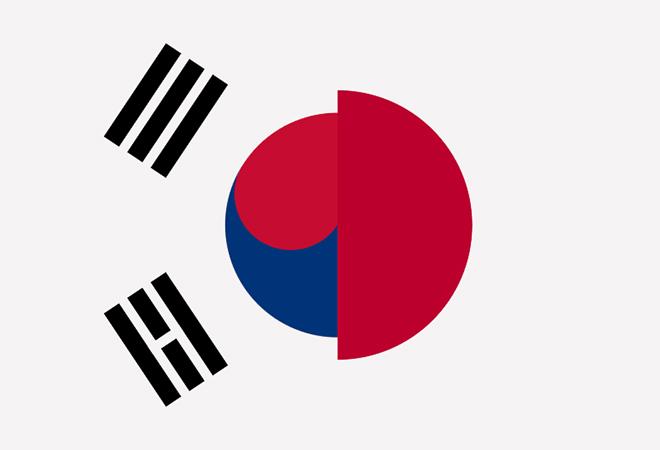 To extend GSOMIA, S. Korea demands Japan to lift off the export curb. (Image via www.orfonline.org)
To extend GSOMIA, S. Korea demands Japan to lift off the export curb. (Image via www.orfonline.org)
Japanese, S. Korean hotshots meet to alleviate wartime tension
On Friday, several politicians and businesspeople from Japan and South Korea (S. Korea) met to discuss the efforts to release tension choking the bilateral relations of the two countries over wartime dispute.The head of Japan Business Federation (Keidanren), Hiroaki Nakanishi, one of the business people attending the meeting, said that business might be one of the solutions for Japan and S. Korea. Nakanishi also called for the two countries to maintain a “steady” dialogue for mutual trust and understanding.
Nakanishi’s statement was also supported by his S. Korean counterpart, the Chairman of the Federation of Korean Industries, Hu Chang-soo. Hu hoped that Japan and S. Korea will soon resolve the antagonisms between them since the WWII era.
Meanwhile, the Japanese and S. Korean politicians met altogether to discuss the General Security of Military Information Agreement (GSOMIA), a military-intelligence sharing pact that reflects the three-way military corporation between Japan, S. Korea, and the United States (U.S) to tackle North Korea’s (N. Korea) nuclear activity and China’s supremacy.
Due to the conflict that dropped the bilateral relations between Japan and S. Korea to their lowest levels in decades, S. Korea threatened to end GSOMIA. Meanwhile, the GSOMIA will be expired at the end of November.
The meeting lasted for two hours, did not reap any productive result as S. Korean politicians remained adamant to scrap off the GSOMIA. S. Korea’s demand remains the same: if Japan wants GSOMIA to keep running, they must lift off the trade curbs on important chemical components. However, no further details were revealed.
The President of the U.S, Donald Trump, was angered by the possibility for the GSOMIA to end and urged both countries to quickly mend their bilateral relations.
In 2018, the Supreme Court of S. Korea ordered the Japanese companies to compensate for wartime labor during Japan’s invasion over the Korean Peninsula from 1910 to 1945. S. Korea also accused Japan of being ignorant of the past sufferings of the S. Korean.
Japan, offended, said that the dispute had been settled in the 1965 treaty where Japan gave US$800 million to S. Korea as the token of “economic cooperation”. The dispute led to the deletion of each other’s names from each other’s “whitelist”.
Japan also imposed chemical export restrictions on S. Korea, crippling S. Korean electronics manufacturers to produce display panels and semiconductors.
Source: https://bit.ly/2NOToEK
 English
English Japan
Japan

zithromax coupon zithromax 500mg canada azithromycin 500mg for sinus infection how to get azithromycin
women taking viagra effects negative effects of grapefruit viagra vs cialis reliable richard ed pills clinical trial drug phases levitra viagra cialis comparison
provigil usa provigil uk buy online best online source for modafinil how long can i take modafinil
what is ventolin purchase ventolin inhaler how many puffs of ventolin is safe what is ventolin?
$5 off cvs printable coupon alternative to viagra is 150 mg viagra safe viagra pills 100 mg sildenafil 20 mg sildenafil vs sildenafil citrate difference female viagra pill pain meds without written prescription generic viagra india price costco drug prices without insurance how much is viagra viagra sildenafil marley generic viagra viagra patent expiration date extended viagra dosage generic viagra equivalent natural sexual supplements for men side effects of viagra lilly cares samples request form mercury drug products list newest ed pills for men viagra no prescription top 50 generic drug manufacturers sildenafil 20 mg tablet normal ed dosage viagra without a doctor prescription viagra tablet cost of cialis at walmart walmart cialis 20mg price viagra alternatives problems with viagra use best energy pills at gnc
ivermectin online ivermectin gel dose of ivermectin for scabies 1.87% ivermectin wormer for horses how to administer
neurontin wikipedia side effects of neurontin 600 mg how long do gabapentin withdrawals last
ivermectin rabbit moxidectin vs ivermectin in small birds how much ivermectin per pound for dogs
modafinil overdose 200mg provigil does provigil give you energy how to get down from modafinil
azithromycin tablets 250mg azithromycin 500mg price in india is zithromax and azithromycin the same thing what can azithromycin be used for
is plaquenil long term use of plaquenil icd 10 plaquenil who makes
best cialis alternative gold max female viagra top rated male enhancement products whats viagra recreational viagra experiences gold max pink cialis in china
ivermectin fleas cost of ivermectin ivermectin for tapeworms in humans which human disease is being effectively controlled with continued use of ivermectin?
prednisone definition prednisone 20 tablet prednisone 5 mg tablet picture how long for prednisone to get out of system
provigil 100 mg provigil coupon drugspillsmart adhd medicines provigil 200 reddit modafinil where to buy?
how to take viagra for best results sexual stimulants over the counter for women price for viagra does walmart sell generic viagra cialis reviews by patients mode of action of viagra
provigil walmart buy provigil canada can you mix provigil and coffee how to vecome a drop ship modafinil vensor
naproxen and prednisone how to get prednisone tablets what does prednisone do for you what is the pill prednisone used for
news about cialis viagra & melanoma viagra otc best adhd drugs for adults 100 mg viagra reviews products that contain sildenafil citrate